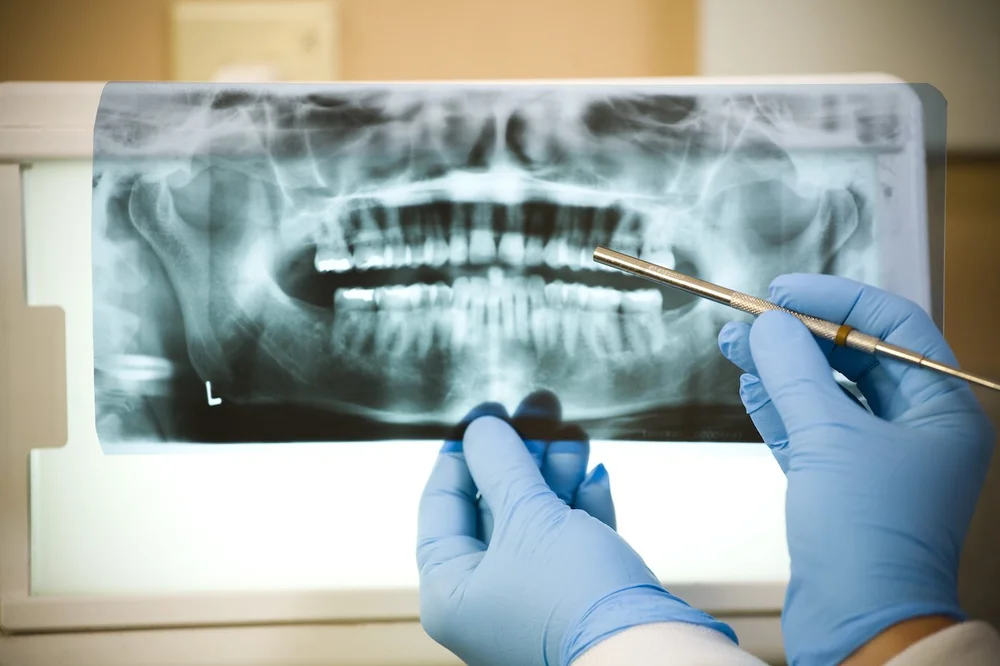What You Should Know Before You Get a Root Canal
Have you ever experienced tooth pain?
Pain in your teeth may be caused by any number of things, including eating too much sugar, bacterial imbalance related to poor diet, eating hard foods, chewing too hard, gum issues (such as gingivitis), an abscess, or root pain. The latter may be the result of clenching or grinding your teeth as you sleep.
Though there are various home remedies to treat tooth pain, if the pain becomes unbearable, your dentist might recommend a root canal.
6 Frequently Asked Questions About Root Canals & Their Impacts on Health

- What’s a root canal?
According to the American Association of Endodontists (AAE), a “root canal treatment is designed to eliminate bacteria from the infected root canal, prevent reinfection of the tooth and save the natural tooth. When one undergoes a root canal, the inflamed or infected pulp is removed and the inside of the tooth is carefully cleaned and disinfected, then filled and sealed.”
- Do I need a root canal?
Root canals can be recommended for those with a cracked tooth, a deep cavity, or lingering problems from a filling that didn’t work well. Other reasons dentists may recommend a root canal include:
- Severe pain while chewing food
- Swollen or tender gums
- Extreme sensitivity to hot or cold that lingers after exposure
- Pimples on the gums
- Deep gum decay, with or without darkened gums
- Does a root canal hurt?
A root canal procedure shouldn’t be any more painful than getting a filling or having a tooth removed, since local anesthesia is used. A patient may be sore or numb, or may experience other mild discomfort, for a few days after the procedure.
- Can I go back to school or work after getting a root canal?
Many patients can return to school or work right after getting a root canal. It’s recommended that patients not eat until the numbness is gone – most people are numb for 2 to 4 hours.
- Are root canals expensive?
The cost of getting a root canal depends on which tooth is affected. Work on molars is typically more expensive since they’re larger and can be harder to treat. Many dental insurance plans cover at least a portion of a root canal procedure.
- Do root canals come with health risks?
Any (oral) surgery involves a certain amount of risk. Though a patient doesn’t have to worry about the negative after-effects occasionally experienced with general anesthesia (such as memory problems or mental fog), there may be some lingering, potentially harmful, effects to getting a root canal.
Necrosis
At its most basic, a tooth that’s undergone a root canal procedure is a “dead tooth.” The good news is that with the nerve endings cut and root removed, you’ll no longer have sensation (pain) in that tooth. The bad news is that even if the area is thoroughly cleaned (which many times it isn’t), some bacteria may remain in and around this dead (“necrotic”) tooth, which can fester into an abscess with pus and often also a pool of inflammatory toxins.
Toxins
During a root canal procedure, the pulp of your tooth is cleaned out and some type of dental filling is put into that periodontal pocket. Unfortunately, in many instances, the cavity isn’t thoroughly cleaned (such as with ozone gas), which may lead to the pooling of harmful pathogens in the moist, hard to reach places of root canal teeth. These pathogens may include some of the most virulent strains known to human science.
The waste material generated by these organisms can be toxic. Such toxins may be carried by the saliva when chewing food. Eventually, these harmful pathogens my find their way into the blood stream.
The release of these toxins into your system can cause serious issues with any number or organs or bodily systems. These may include the cardiovascular, circulatory, and nervous systems. Among serious, ongoing effects are fatigue, body aches, or autoimmune issues.
Fillings
The type of filling used by an oral surgeon may include a toxic, amalgam substance. As the word implies, amalgams are a mixture of metals and may include harmful heavy metals like mercury. Exposure to certain elements in these fillings may cause allergic reactions or other serious physical and/or mental health issues.
Sealing
Using the proper amount of sealant is extremely important for the oral surgeon. Too much may cause gum swelling or bleeding. Too little may allow bacteria back into the site, which might cause another infection.
Accidents
On rare occasions, a dental instrument might break, and fragments might accidentally be left in the surgery site. This may cause lesions, swelling, or bacterial infections. As with any surgery, accidental incisions may cause extreme blood loss which could lead to an emergency trip to the hospital.
Root Cause: Fact or Fiction?
The Netflix documentary Root Cause (2018) created a shockwave in the dental field. The documentary features opinions from several dentists and doctors from around the world who claim root canal procedures are the “root cause” of many unexplained serious, and sometimes fatal, illnesses.
Netflix pulled the film within a month of its release, ostensibly due to the lack of scientific evidence behind many of its claims. Of course, this decision was viewed as a knee-jerk reaction by some and an outright cover-up by others. In the age of truth suppression, the prudent course would’ve been for Netflix to place an advisory at the beginning of the film and allow people to make up their own minds about its content.
Be that as it may, the documentary makes a compelling case for how root canals may be the cause of certain physical maladies. If any of its claims are accurate, Root Cause might be a harbinger of the many potential long-term health risks that can result from a root canal procedure. Unfortunately, the argument is far from being settled and very few medical or scientific studies about root canals have been published.
Important Decision
Despite how easy and painless the AAE makes it sound, getting a root canal is a major decision that may have a long-term impact on your health. Many “Western” dentists adhere to the “save the tooth at all costs” philosophy, but is it wise to save the tooth if it jeopardizes the health of the patient?
It’s recommended to have a consult with your dentist and a root canal specialist before scheduling a root canal procedure. In fact, it’s always best to get a second opinion where a major surgery is concerned. If possible, try speaking to a holistic dentist and seek out any natural alternatives that can help mitigate the pain in your tooth.
One of the keys to avoiding tooth death (and a root canal surgery) is to take care of your gums. Be sure to brush and floss daily to keep your teeth healthy, white, and bright!
At BrainMD, we’re dedicated to providing the highest purity nutrients to improve your physical health and overall well-being. For more information about our full list of brain healthy supplements, please visit us at BrainMD.
- This Is What You Need to Know About HBOT
Medically Reviewed by Dr. Nicole Avena - April 22, 2024 - Hormone Changes in Men: How to Know If You Have Low Testosterone! - April 15, 2024
- This Is What You Need to Know About EMDR Therapy! - April 11, 2024

